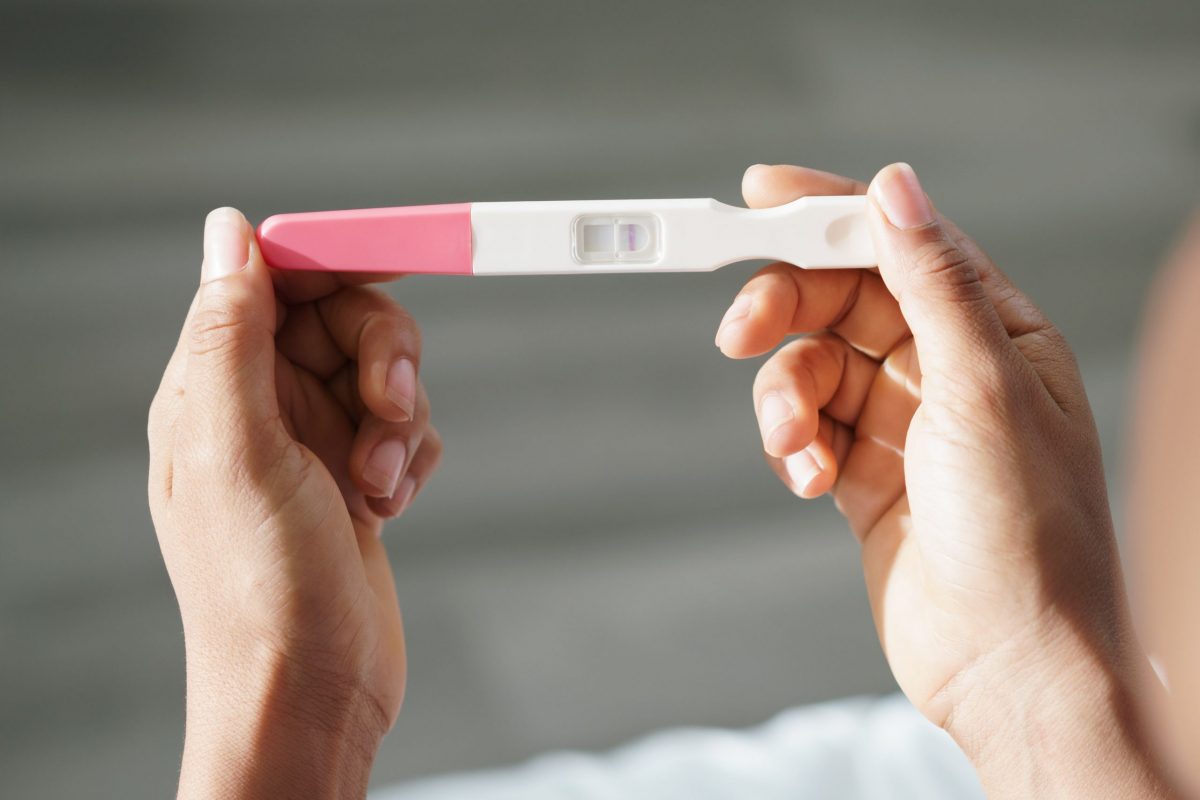Do you think you’re pregnant? It’s easy to take a pregnancy test — all you need is your pee.
When should I take It?
Reasons may vary from person to person, but here are some of the common signs that mean it might be a good idea to take a pregnancy test:
You missed your period.
A missed period is one of the first and reliable signs of pregnancy.
Determining whether you’re late or not might be difficult if you don’t usually keep track of your cycle. Women have a 28-day menstrual cycle on average. It’s a good idea to take a test if it’s been more than a month since your last period. For example, you usually get your period every 5th of the month. But a week has passed and you still don’t have your period. You can take a pregnancy test on the 12th, onwards.
Keep in mind that other factors such as stress, diet, exercise, and medical condition can also delay or skip your period.
Consult a doctor if you have bleeding and a positive pregnancy test.
You experience cramps.
You might experience cramps similar to menstrual cramps when implantation has occurred. During the early stage of pregnancy, you may feel this discomfort and think that you’re just about to get your period soon — but then it doesn’t come.
Your breasts hurt.
Pregnancy causes your body to produce more estrogen and progesterone. These hormones make changes in your body to support the baby’s growth.
Increased blood flow may make your breasts feel tender and appear bigger. Your nipples might hurt and the veins might look darker.
This symptom doesn’t always suggest pregnancy since breast discomfort is also experienced before your period comes.
You feel different.
Aside from cramps and sore breasts, you may also experience the following during early pregnancy:
- Nausea
- Food aversions
- Exhaustion
- Frequent urination
These symptoms may get worse as the weeks pass before your HCG (human chorionic gonadtropin) balances out late in the first trimester. Pay attention to your body and watch out for any symptoms that could cue you to take a pregnancy test.
Your contraception failed
Contraceptives always have a very slight chance of failing, especially when they weren’t used properly or consistently. You might have missed a pill, or the condom wasn’t put on properly are just a few examples of human errors that could lessen the effectivity of contraception. Consulting a healthcare provider may help you determine which contraceptive fits your lifestyle best.
If you think your contraception failed and you notice any of the symptoms mentioned above, you might want to consider taking a pregnancy test.
How soon should I take it?
Seven days after your missed period will give you the best results. This gives your body enough time to produce traceable levels of HCG, which is a pregnancy hormone released after a fertilized egg cell has implanted. Take the test on your first bathroom visit in the morning, or hold your pee in for a few hours to increase the concentration of the HCG hormone.
Where can I get a pregnancy test kit?
Pregnancy test kits are easily available in leading drugstores. There are different brands to choose from, but the more expensive ones aren’t necessarily more accurate. They’re all accurate as long as you follow the instructions properly.
How does it work?
Different brands may have different instructions, but all of them will only require your pee. They’ll detect traces of HCG in your pee, which is why it’s important to give your body enough time to produce HCG. Always read and follow the instructions carefully to assure you accurate results.
Is it accurate?
Pregnancy tests are very accurate if they are used correctly. However, they may not be able to give you accurate results if you take them too early. It’s best to use them after you’ve already missed your period. It’s also important to check the expiration date because an expired kit will be less accurate.
What should I do after getting the result?
If your result comes out negative, but you still think you’re pregnant, take another test after a few days. Visit your healthcare provider if you get a second negative result but you’re still experiencing symptoms of pregnancy.
If the result is positive, that means you’re pregnant. You can also take another one if you want to be sure. You can visit your healthcare provider for a follow-up test, and for useful information and advice for your pregnancy.
Sources:
https://www.healthline.com/health/pregnancy/five-signs-to-take-pregnancy-test#contraceptive-failure
https://www.plannedparenthood.org/learn/pregnancy/pregnancy-tests



